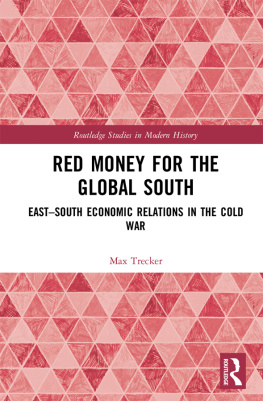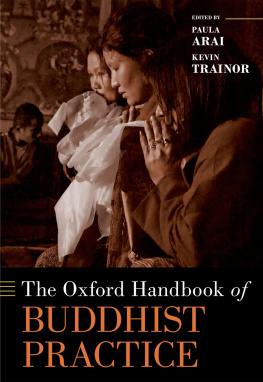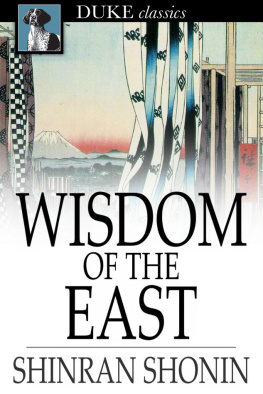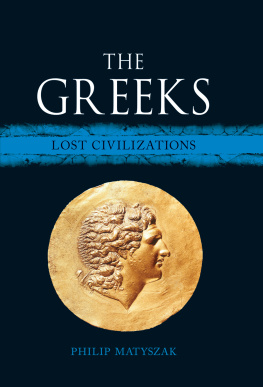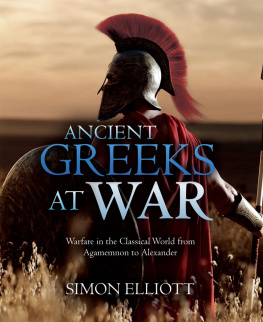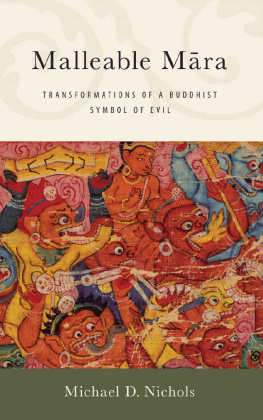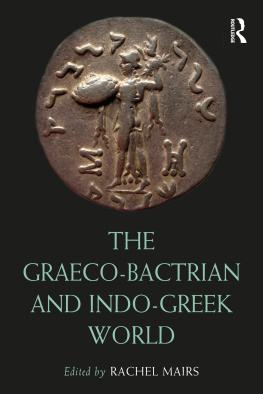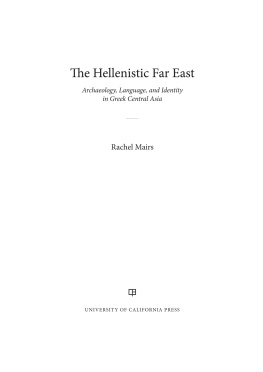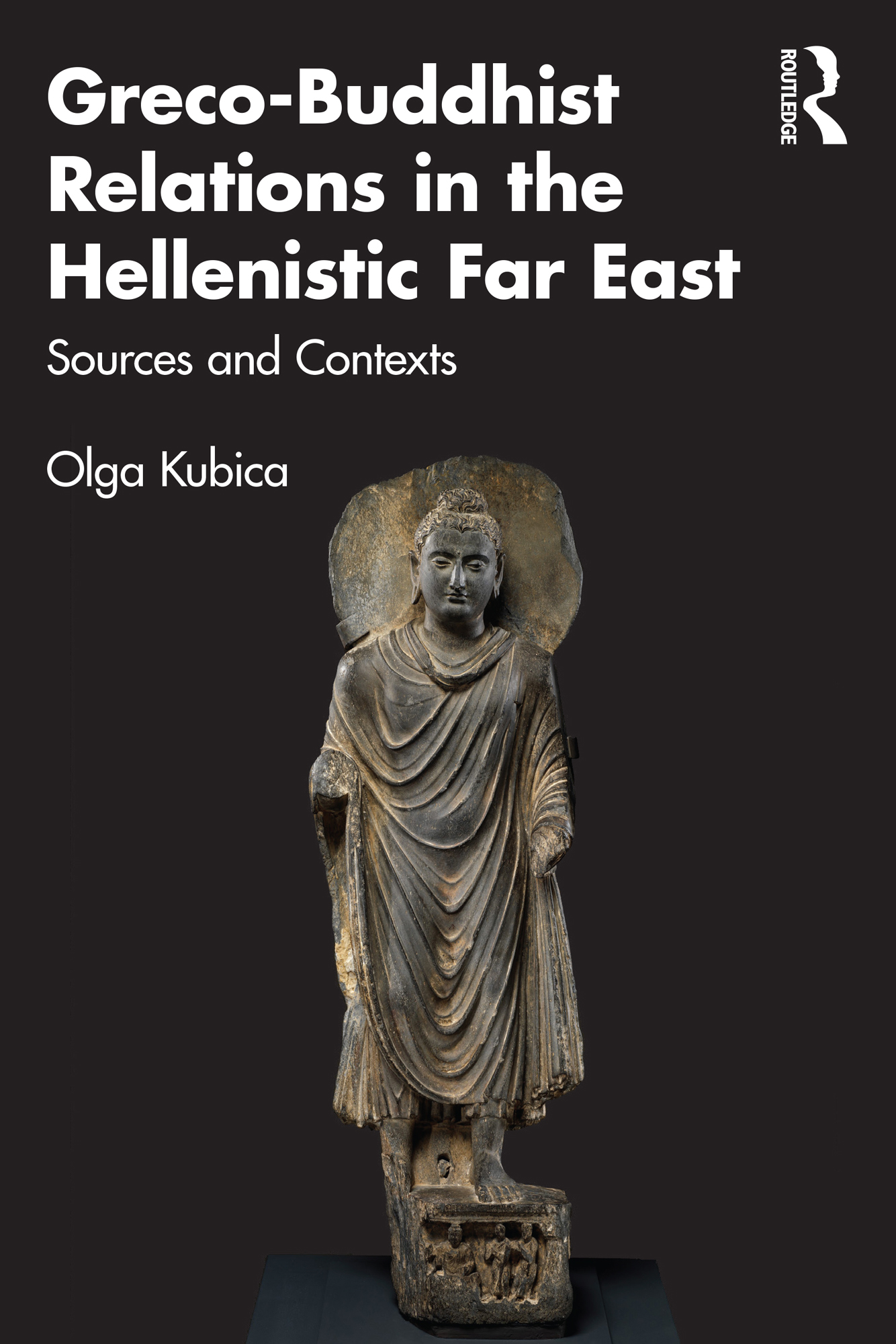
Greco-Buddhist Relations in the Hellenistic Far East
This book provides the first comprehensive and interdisciplinary view of the relationship between the Greeks and Buddhist communities in ancient Bactria and Northwest India, from the conquests of Alexander the Great to the fall of the Indo-Greek kingdom circa 10 AD.
The main thesis of this book is the assumption that, despite the presence of mutual relationships and interactions between the Greeks and Buddhist inhabitants of the Hellenistic Far East, the phenomenon known conventionally as Greco-Buddhism never truly occurred. The individual chapters of this book provide an analysis of the main sources for Greco-Buddhist relations, mainly textual, but also archaeological and numismatic. The methods of philological and historical research are used in combination with postcolonial approaches to the study of the Greeks in India drawing from sociological research on ethnicity and intercultural relations. It is a rich source of information for anyone interested in Greco-Buddhist relations and is a great starting point for further research in this area.
This volume is a valuable resource for students and scholars working on the Greco-Bactrian and Indo-Greek kingdoms, both classicists and those working on early Indian history, as well as those working on cultural exchange in the Hellenistic world.
Olga Kubica is Lecturer of Classics at the University of Wrocaw. She has finished her PhD in Ancient History as part of the international PhD project The Eastern Mediterranean from the 4th C. BC until Late Antiquity at the University of Wrocaw, with internships at the University of Liverpool and Jawaharlal Nehru University in New Delhi.
Olga Kubica provides a most authoritative survey of the interactions of the Greeks in India with their Buddhist contemporaries. Her work is an invaluable guide to the historical and philological problems and to the scholarly controversies surrounding this period of ferment in the history of ideas.
Richard Stoneman , Honorary Visiting Professor, University of Exeter, UK
Designed cover image: Buddha, third century, Pakistan, Khyber-Pakhtunkhwa province, possibly Takht-i-bahi monastery, ancient region of Gandhara. Acc. no.: 2014.188. Purchase, Denise and Andrew Saul Gift, in honor of Maxwell K. Hearn, 2014. The Metropolitan Museum of Art.
First published 2023
by Routledge
4 Park Square, Milton Park, Abingdon, Oxon OX14 4RN
and by Routledge
605 Third Avenue, New York, NY 10158
Routledge is an imprint of the Taylor & Francis Group, an informa business
2023 Olga Kubica
The right of Olga Kubica to be identified as author of this work has been asserted in accordance with sections 77 and 78 of the Copyright, Designs and Patents Act 1988.
All rights reserved. No part of this book may be reprinted or reproduced or utilised in any form or by any electronic, mechanical, or other means, now known or hereafter invented, including photocopying and recording, or in any information storage or retrieval system, without permission in writing from the publishers.
Trademark notice: Product or corporate names may be trademarks or registered trademarks, and are used only for identification and explanation without intent to infringe.
British Library Cataloguing-in-Publication Data
A catalogue record for this book is available from the British Library
Library of Congress Cataloging-in-Publication Data
Names: Kubica, Olga, author.
Title: Greco-Buddhist relations in the Hellenistic Far East : sources and contexts / Olga Kubica.
Description: New York : Routledge, 2023. | Includes bibliographical references and index. |
Identifiers: LCCN 2022053059 (print) | LCCN 2022053060 (ebook) | ISBN 9781032193021 (hardback) | ISBN 9781032193007 (paperback) | ISBN 9781003258575 (ebook)
Subjects: LCSH: Indo-GreeksHistory. | GreeksBactriaHistory. | GreeksIndia, NorthwesternHistory. | BuddhistsBactriaHistory. | BuddhistsIndia, NorthwesternHistory. | BactriaEthnic relations. | India, NorthwesternEthnic relations. | BactriaAntiquities. | India, NorthwesternAntiquities. | IndiaCivilizationGreek influences. | IndiaHistory324 B.C.-1000 A.D.
Classification: LCC DS451 .K797 2023 (print) | LCC DS451 (ebook) | DDC 305.800939/6dc23/eng/20221206
LC record available at https://lccn.loc.gov/2022053059
LC ebook record available at https://lccn.loc.gov/2022053060
ISBN: 978-1-032-19302-1 (hbk)
ISBN: 978-1-032-19300-7 (pbk)
ISBN: 978-1-003-25857-5 (ebk)
DOI: 10.4324/9781003258575
Typeset in Bembo
by codeMantra
Figures and Tables
Figures
Table
Acknowledgements
I was able to complete this study thanks to the financial assistance in the form of scholarships and prizes from various institutions. I would like to express my appreciation for this to the Foundation for Polish Science and European Union, Regional Development Fund (for the grant in the project The Eastern Mediterranean from the 4th Century BC until Late Antiquity), to the Faculty of Historical and Pedagogical Sciences of the University of Wrocaw (for an internal grant for a research project titled Menander I Soter and Buddhism), and to the Society for the Promotion of Hellenic Studies and the Leventis Foundation (for a full bursary for the conference Dialogues Between Greece and the East).
I have been assisted during the course of my research by various scholars and colleagues. I would like in particular to thank Prof. Gociwit Malinowski, Prof. Thomas Harrison, and Prof. Himanshu Prabha Ray for their guidance and help throughout the period of my writing of this book. I wish to acknowledge my gratitude to Prof. Krzysztof Nawotka and Dr Agnieszka Wojciechowska for conducting the project The Eastern Mediterranean from the 4th Century BC until Late Antiquity. My thanks are also due to the Hellenistic Central Asia Research Network, especially to Prof. Rachel Mairs as the founder, for the friendly community of researchers in which this book could ripen like a fruit in the sun. Among my colleagues, I would like to express my appreciation especially to two who are like a mast of the Gandhran studies ship: Prof. Luca Maria Olivieri in the field of archaeology and Dr. Stefan Baums in the field of language studies. I wish to express my gratitude also to my family: my mother, my sister, and my son, without whose support and patience the writing of this book would not be possible.
Introduction
DOI: 10.4324/9781003258575-1
When on various occasions I am asked what topics I deal with in my research work and I reply that I am exploring the relations between the Greeks and Buddhism in the areas of the so-called Hellenistic Far East (HFE), corresponding to ancient Bactria and India, especially Northwest India, in the time from the conquest of these areas by Alexander the Great until the end of the Indo-Greek kingdom (around 10 AD), I usually encounter a great surprise on the part of my interlocutors followed by a series of questions. Therefore, let me introduce the reader to the reading of this book by answering the most frequently asked questions. At the same time, I am asking for forgiveness from those readers for whom these issues are obvious. Since this book covers an extremely rich subject and each chapter could be developed as a separate monograph, perhaps researchers who study particular topics and sources more deeply will not find very insightful considerations here. This book is a rather brief introduction for people who would like to learn about the complex issues of Greco-Buddhist relations, also as a starting point for their own research. However, for my own justification, I would like to add that here and there the former will also find interesting new proposals for interpreting known sources.
Next page

